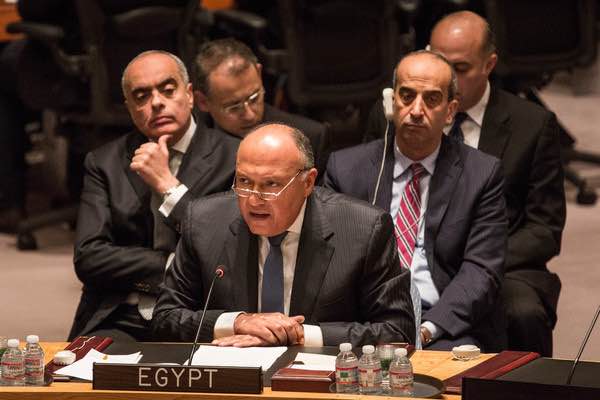CAIRO: Egypt ranked as the second recipient of foreign direct investment (FDI) among African nations in 2009, according to a UN report, following Angola in first place.
Egypt received a total of $7 billion in FDI inflows, while Angola’s came in at $13 billion, said Astrit Sulstarova, an expert from the investment division at the United Nations Conference on Trade and Development (UNCTD).
Foreign direct investments (FDI) to Africa declined by 19 percent, from $72 billion to $59 billion in 2009, due to the global economic recession, according to the “United Nations World Investment Report 2010: Investing in a low-carbon economy.”
The 19 percent drop, which has also been due to a fall in commodity prices, “is much lower than compared to other developing regions,” Sulstarova said at a conference in Cairo on July 22.
Developed countries suffered far worse due to the global economic slowdown, with 2009 FDI inflows sinking by 44 percent, and transition countries — South-East Europe and the CIS — declining by 43 percent.
The report highlighted that although the fallout has been “moderate” in Africa, it should not be overlooked, as FDI accounts for “about a fifth” of gross capital formation in the region, the UNCTD said in a statement.
The report concluded that developing and transition economies such as Egypt are “leading” the way in global FDI recovery, Sulstarova said.
To be sure, these same economies attracted 50 percent of global FDI in 2009 — the first time this has ever occurred, he explained, with $548 billion as well as invested 25 percent of global FDI outflows, with $280 billion.
Destination Egypt
According to a recent survey conducted, which examined the most attractive worldwide countries for foreign investors, Egypt ranked as the 31st priority destination, Sulstarova said.
He pointed out that the existence of economic courts to settle disputes within the private sector “played an important role in attracting FDI” to Egypt.
“Also investors in both developed and developing countries are interested in the strategic position of Egypt, as it provides a logistical link between both Africa and Europe,” he stated.
Sulstarova also drew attention to the reports findings regarding investment policy trends, indicating that, “the number of international investment agreements (IIAs) is increasing,” with four new IIAs established globally per week.
“Egypt is one of the countries with the largest number of bilateral IIAs, with 101 in total to date,” he stressed.
As regards FDI in the context of climate change mitigation strategies and technology, due to the global economic downturn, Africa and the rest of the world experienced a decline in greenfields — or new investment projects, while Egypt, on the other hand, witnessed an uptick.
Sulstarova underlined that transnational corporations have an imperative role to play in global FDI flows, especially concerning low-carbon investment technology.
The report revealed that “FDI flows in alternative or renewable electricity generation, recycling and manufacturing of environmental products reached $90 billion alone in 2009,” with 40 percent of low-carbon FDI projects located in developing countries between 2003-2009.
Transnational corporations were the main investors in these projects, the report indicated.
Nonetheless, Sulstarova noted that transnational corporations may increasingly seek to invest in developing countries to “escape” carbon restrictions in developed markets, a phenomenon termed “carbon leakage.”
However, “more and more developing countries have implemented more rigorous environmental laws,” which should curb carbon leakage, he said.
He pointed out that this issue would not be solved by border tariffs, but by governments in developed countries pressuring transnational corporations to create corporate governance mechanisms.
The report also examined future prospects for global FDI flows, with expectations that FDI flows will reach $1.2 trillion in 2010, $1.3-$1.5 trillion in 2011 and $1.6-$2 trillion in 2012.
He mentioned the projected 2012 figures, though more robust, would only result in FDI flows returning to previous 2007/08 levels.
Focusing on Africa, including Egypt, FDI inflows are expected to grow, which will be the result of both a general global recovery and the strong economic performance of Asian countries, especially given that they are major direct investors, Sulstarova mentioned.


